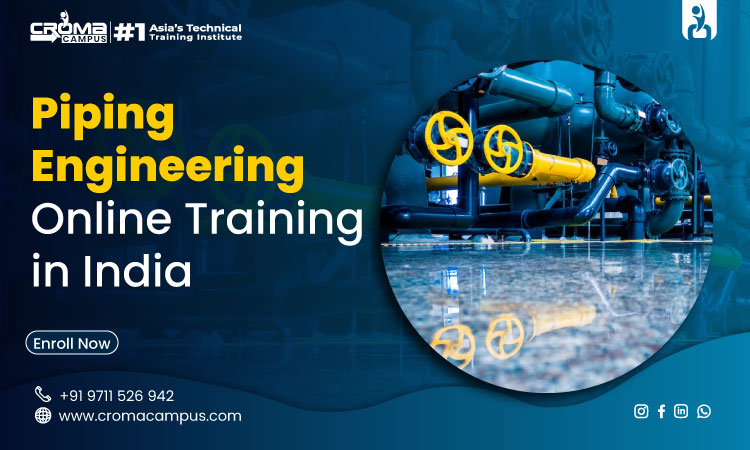Introduction
Piping Engineering is a crucial field within the realm of mechanical engineering that focuses on the design, layout, and analysis of piping systems. These systems are used to transport fluids, such as water, gas, oil, and chemicals, in various industries, including petrochemical, pharmaceutical, power generation, and manufacturing. Piping engineers play a pivotal role in ensuring the safe and efficient conveyance of fluids through intricate networks of pipes. Over the past few years, there has been a huge demand in taking up the Piping Engineering Online Training in India by candidates belonging to different fields.
The Importance of Piping Engineering
Piping systems are the lifelines of many industrial processes. They are responsible for transporting raw materials, intermediate products, and final products within a facility. The efficiency and reliability of these systems can have a significant impact on the overall productivity and safety of an industrial operation. This is where piping engineering comes into play.
Roles and Responsibilities of Piping Engineers
Piping engineers are responsible for several key tasks throughout the lifecycle of a piping system:
1. Design and Layout: Piping engineers design the layout of the piping system, taking into consideration factors such as fluid properties, flow rates, pressure, temperature, and structural integrity. They select appropriate materials for pipes, fittings, and valves, ensuring compatibility with the conveyed fluids and environmental conditions.
2. Stress Analysis: Analyzing the stress and strain on pipes and supports is crucial to prevent failures due to excessive pressure, temperature fluctuations, or external forces. Piping engineers use advanced software and calculations to determine stress levels and make necessary design modifications.
3. Code Compliance: Piping systems must adhere to various industry standards and codes, such as ASME (American Society of Mechanical Engineers) and API (American Petroleum Institute). Piping engineers ensure compliance with these codes to guarantee safety and reliability.
4. Cost Estimation: Estimating the cost of materials, labour, and equipment is a vital aspect of piping engineering. Engineers work closely with project managers to create accurate budgets.
5. Safety and Environmental Considerations: Piping engineers prioritize safety by designing systems that minimize the risk of leaks, spills, or accidents. They also consider environmental factors, ensuring compliance with environmental regulations and minimizing the environmental impact of piping systems.
Tools and Software in Piping Engineering
Piping engineers utilize a range of tools and software to perform their tasks efficiently and accurately. Some common software programs include AutoCAD, Piping Stress Analysis software like CAESAR II, and 3D modelling tools like Autodesk Inventor or SolidWorks. These tools help in creating detailed designs, simulating stress conditions, and generating comprehensive documentation.
Challenges in Piping Engineering
The field of Piping Engineering presents several challenges:
- Complexity: Piping systems can be highly complex, with numerous components and interconnected networks.
- Safety: Ensuring the safety of personnel and the environment is paramount, especially when dealing with hazardous fluids.
- Environmental Concerns: Meeting environmental regulations and reducing the carbon footprint of piping systems is increasingly important.
- Maintenance: Proper maintenance and inspection are crucial to prevent unexpected failures.
Conclusion
Well, now it must be clear that piping engineering is a multidisciplinary field that plays a pivotal role in various industries by designing, analysing, and ensuring the safe operation of piping systems. Piping engineers combine technical knowledge, creativity, and an acute understanding of industry standards to create efficient and reliable networks for fluid transport. As industries continue to evolve, the importance of piping engineering in ensuring safety, efficiency, and sustainability remains unwavering. So, if you have an interest in constructing your career in this specific direction, you must enquire about Piping Engineering Course Fees and get started with it. This way, you will end up obtaining adequate information coming from a trustable source.





